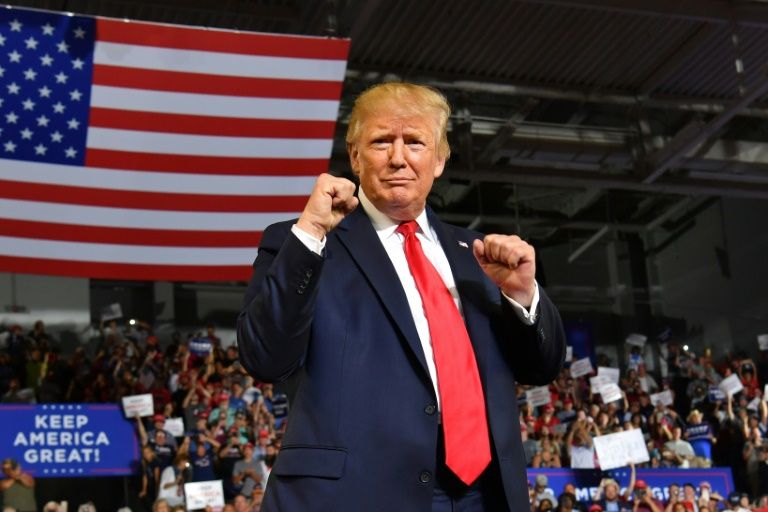US President Donald Trump on Friday criticized the World Bank for loaning money to China on low-interest rates and urged the institution to stop lending to Beijing.
Taking to Twitter, Trump said, “Why is the World Bank loaning money to China? Can this be possible? China has plenty of money, and if they don’t, they create it. Stop”.
Advertisement
The World Bank on Thursday adopted a plan to aid China with $1 billion to $1.5 billion in low-interest loans annually through June 2025. The plan calls for lending to “gradually decline” from the previous five-year average of $1.8 billion.
US Treasury Secretary, Steven Mnuchin, also reacted to the World Bank’s announcement.
In a Congressional hearing, he said that the Trump administration had opposed the new five-year framework lending plan by the bank that has already loaned over $1 billion to China this year.
The World Bank loaned China $1.3bn in the fiscal 2019 year, which ended on 30 June, a decrease from about $2.4bn in fiscal 2017.
But the fall in the World Bank’s loans to China is not swift enough for the Trump administration, which has argued that Beijing is too wealthy for international aid.
The White House and the World Bank did not immediately respond to requests for comment about Trump’s remark.
The US Congress is now considering another bill in support of Muslim minorities in the Xinjiang Uighur Autonomous Region, which also provides for sanctions against Beijing officials.
In November, President Trump had said that he did not yet agree to roll back tariffs. He is expected to have the last word in the United States on terms of any “phase one” deal.
China had called for a rollback of existing tariffs, to which Trump has said he did not agree. American officials want large purchases of US farm exports.
In September, the US had imposed fresh tariffs on $112 billion worth of Chinese imported goods, marking a sharp escalation of the bruising trade war between the world’s two largest economies.
Donald Trump launched the trade war as part of his “America First” bid to lower a wide trade deficit with China, but the tariffs imposed thus far have barely made a dent in that gap.











